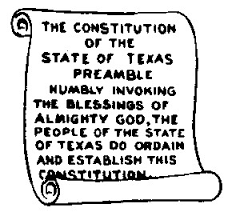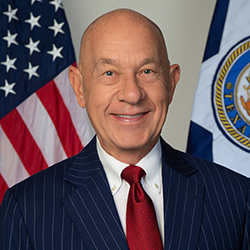(Note: As I have done in past elections, I am running a series of Q&As for judicial candidates in contested Democratic primaries. This is intended to help introduce the candidates and their experiences to those who plan to vote in March. I am running these responses in the order that I receive them from the candidates. Much more information about Democratic primary candidates, including links to the interviews and judicial Q&As, can be found on Erik Manning’s spreadsheet.

TaKasha Francis
1. Who are you and what are you running for?
I am TaKasha Francis, running for judge of the 152nd Civil District Court in Harris County. A Houston native, I graduated from Michael E. DeBakey High School for Health Professions in 1994, Texas Southern University in 1999, and Thurgood Marshall School of Law in 2003. Beginning my legal career in the public sector, I served as an Assistant Attorney General in the Child Support Division at the Office of the Attorney General of Texas from 2004 to 2011. Later, I founded The Francis Firm P.C., specializing in Family Law and Civil litigation.
In 2016, I shifted from private practice to public service as a mayoral appointee by Mayor Sylvester Turner. Confirmed unanimously by the Houston City Council, I became the Director of the City of Houston Department of Neighborhoods. In this role, I have played a key role in shaping strategic visions to improve the quality of life for over 2.6 million residents in Harris, Fort Bend, and Montgomery counties. Managing five divisions, I have delivered valuable services, initiated innovative community programs, and fostered strong partnerships within the community.
2. What kind of cases does this court hear?
The 152nd Civil District Court hears civil disputes, determining damages and establishing litigants' rights. Cases within its jurisdiction encompass a range of matters, such as contract disputes, lease conflicts, product liability claims, medical or professional negligence, car accidents, slip and fall injuries, job terminations due to illegal discrimination, property foreclosures, and violations of statutes leading to financial losses. This court does not hear criminal cases or other types of civil law matters in family, probate, or juvenile law.
3. Why are you running for this particular bench?
I am seeking this bench because it is another way to meaningfully serve communities and a natural extension of my role as a public servant. Judges, as public servants, play a vital role in our communities by making decisions that affect people's lives, resolving disputes, and upholding the law. My goal is to continue bridging the gap between the legal system and the public, fostering a better understanding of the law and the judicial process within the community.
My candidacy is driven by a deep commitment to justice, fairness, and the rule of law. My diverse professional background as an attorney and public servant uniquely qualifies me for this role. It provides me with a profound understanding of everyday people and their experiences. I bring a fresh perspective and innovative ideas to the bench, offering a different approach to addressing legal issues and improving efficiency for lawyers, litigants, and jurors.
4. What are your qualifications for this job?
In addition to meeting the statutory requirements for judges outlined in the Texas Government Code, I bring nearly two decades of extensive and diverse legal experience as a trial lawyer. My ethical standards are high, emphasizing fairness and an even temperament. With the ability to thoroughly analyze, interpret, and apply the law, I make well-reasoned decisions based on both legal principles and the facts presented in each case.
Recognized by my peers with awards such as the Mission Ally Award by the Houston Lawyers Association, and distinctions like being named one of the Top 40 Attorneys Under 40 by the National Black Lawyers Organization and Top 50 Black Attorneys in Houston by the D-Mars Business Journal, I have also been honored as one of Houston’s 40 Attorneys Under 40 to Watch by i10 media magazine. Serving on the Alumni board of Thurgood Marshall School of Law adds to my commitment to legal excellence.
My expertise extends to strong conflict resolution skills, demonstrated by successfully mediating cases in private practice, and currently mediating employee and neighborhood grievances as a city director. Beyond experience, I bring a fresh perspective and an innovative approach to the bench. This includes active participation in the community as an essential part of my judicial duties.
My demonstrated commitment to public service and community involvement gives me a unique understanding and appreciation of diverse perspectives and backgrounds. As the director of neighborhoods, I connected the legal community directly with neighborhoods by creating initiatives like the "Month of Service" program, offering free online legal workshops to enhance residents' quality of life.
Having facilitated the first-ever Memorandum of Understanding between the Harris County Dispute Resolution Center and the Department of Neighborhoods, I enabled dispute resolution services for Houston Super neighborhoods and civic clubs. The establishment of Complete Communities University, the city's first civic engagement leadership program, exemplifies my dedication to creating programming aimed at educating emerging leaders on local government and effective advocacy.
My commitment reflects the belief that judges are not detached legal authorities but integral members of the communities they serve, and I intend to continue this work if elected.
5. Why is this race important?
This judicial race is important because civil judges oversee the everyday decisions that impact ordinary people in their daily lives. It is crucial for individuals to have confidence that the judge overseeing their case sees them and recognizes and understands their concerns. They should trust that the judge will treat them and their issues fairly, ensuring equity and justice for all, regardless of their background. This aligns with the shared values that everyone, regardless of political affiliation, desires in judges: impartiality, integrity, fairness, legal knowledge, professionalism, courtesy, efficiency, and a commitment to serving the community.
6. Why should people vote for you in March?
Voters should choose me because I am the only candidate in this race with a diverse professional background as an attorney and public servant. This distinctive qualification uniquely positions me to comprehend the everyday experiences of people and make well-reasoned decisions grounded in both legal principles and presented facts in each case.
Beyond acknowledging the importance of experience, I bring a fresh perspective and an innovative approach to the bench, specifically through active community involvement as an integral part of my judicial duties. Serving as the current Director of Neighborhoods, I am a recognizable presence in the community, and my commitment will be ongoing beyond election season. Valuing diversity of thought, my commitment to upholding ethical standards and building public trust aligns with the principles of justice and the community's needs. I am dedicated to treating everyone fairly and with dignity, regardless of who they are. My legal expertise, temperament, and ability to adapt to an evolving legal environment guarantee efficient service while maintaining a strong emphasis on fairness, impartiality, and transparency.
I am committed to improving judicial efficiency by moving away from outdated processes and programming and maintaining engagement in community initiatives and education. This aims to enhance public understanding of the legal system, court procedures, and civic responsibility.
Voting for me guarantees the fresh perspective and innovative judicial experience that Harris County deserves, and I am eager to contribute to creating a better judicial process and experience for lawyers, litigants, and jurors alike.






















